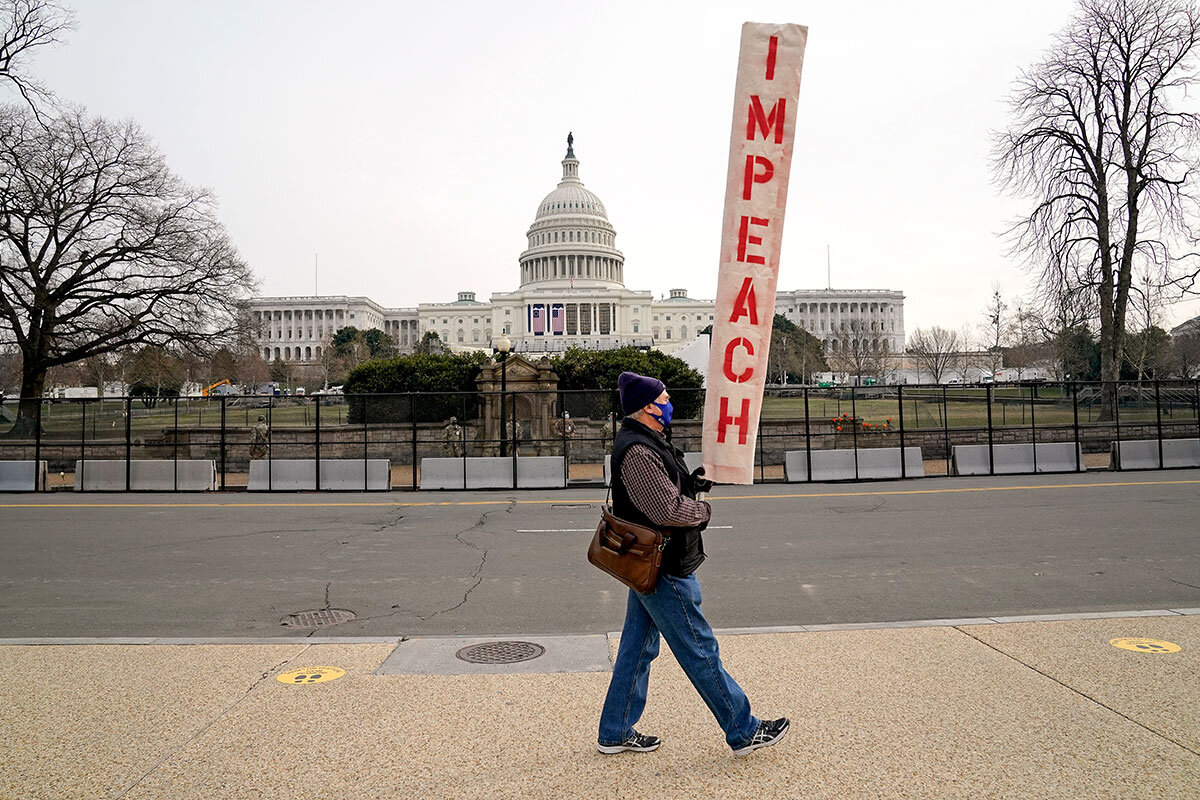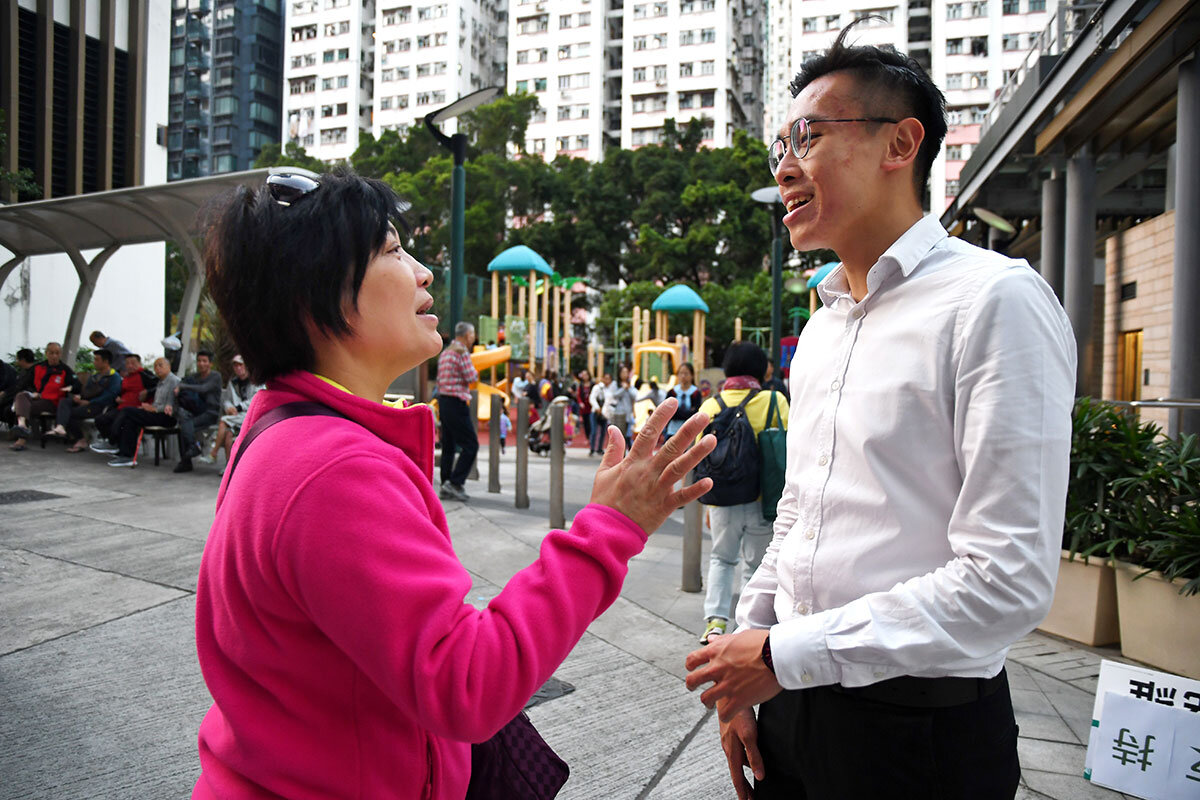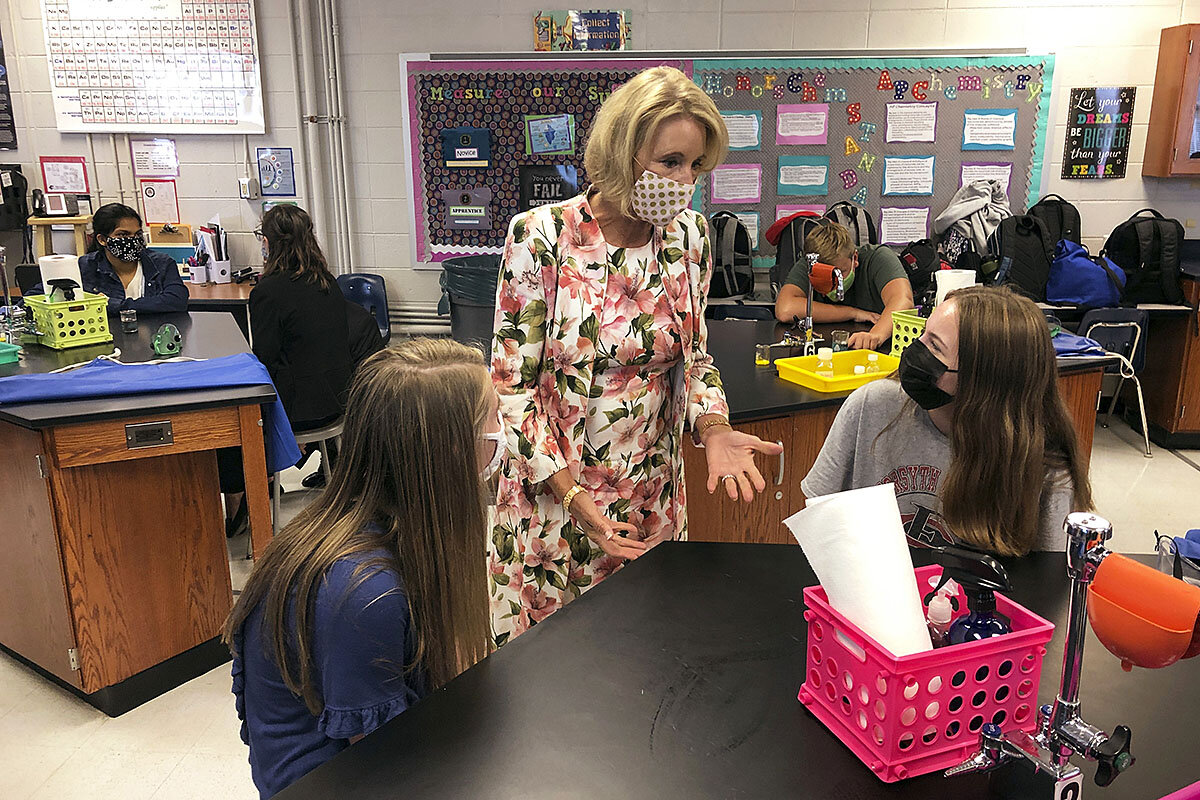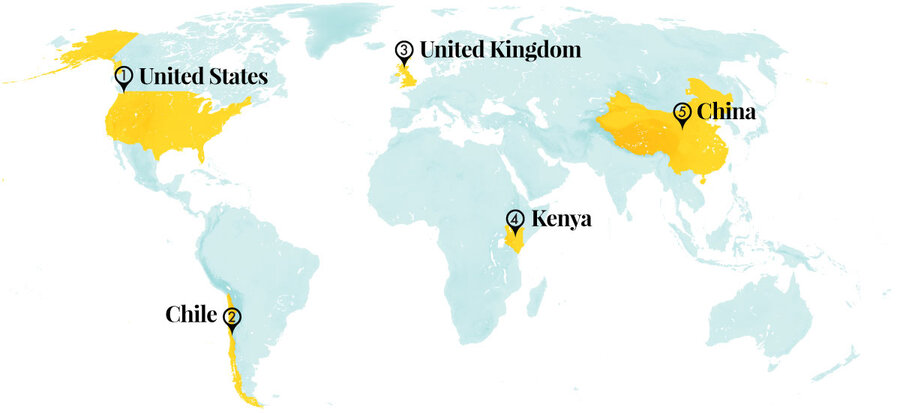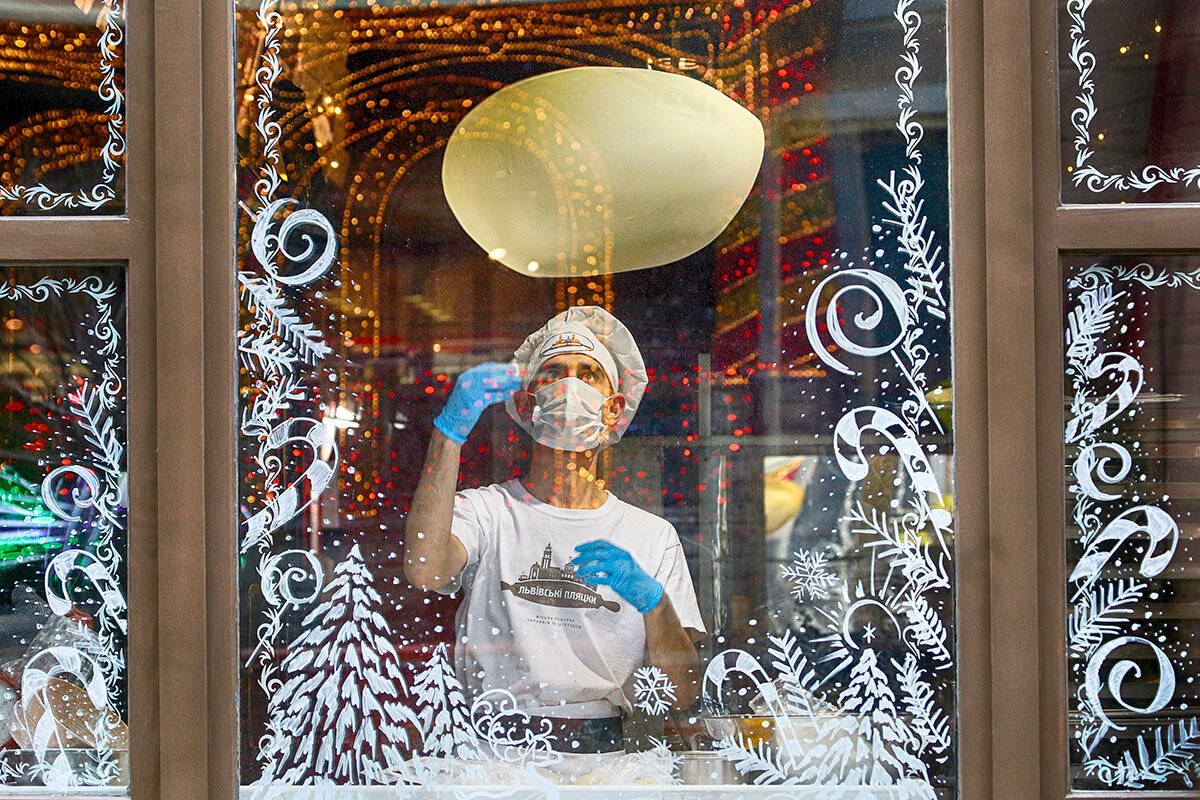What is true unity? As Congress works toward a just response to the Capitol siege, lawmakers say that it’s not something to be achieved by setting accountability aside: our report.
Monitor Daily Podcast
- Follow us:
- Apple Podcasts
- Spotify
- RSS Feed
- Download
 Clayton Collins
Clayton Collins
The work of ensuring accountability and consequences, at all levels, for last Wednesday’s insurrection at the U.S. Capitol deepens.
One effort targets the root. Social media platforms have acted to stem deadly disinformation. (See our third story, below.) Now, besides transparency and persistence, what could help restore trust in fact-based news? Maybe a little humanization.
Some members of the media – called “enemies of the people,” “fake news,” “soft targets,” and worse – are pursuing a vital role, especially in local news. It goes far beyond traditional service journalism. It exhibits the heart of public service.
Andy Larsen, a Utah reporter, started a holiday help fund with $165.84 that his mother found stashed in his childhood bedroom. He tweeted about his plan to use it to ease families’ strain. Then donors chipped in. He would end up distributing $55,000 to people facing pandemic-depleted holidays, reported The Washington Post.
“It was important to me to verify every story,” he says, “and help as many people as possible.”
Having a journalist’s skill set helps. CD Davidson-Hiers, a Florida reporter, kept seeing messages from readers about COVID-19 vaccinations. Her small paper has no dedicated health beat so she offered to run down answers. More than 150 readers took her up on that within days, according to Poynter. She has helped seniors with applications and online forms. She follows up. She reassures.
“There’s a lot of murk to wade through,” she says. But “to have people call me directly now with questions, real questions, this feels like why I got into this profession.”




